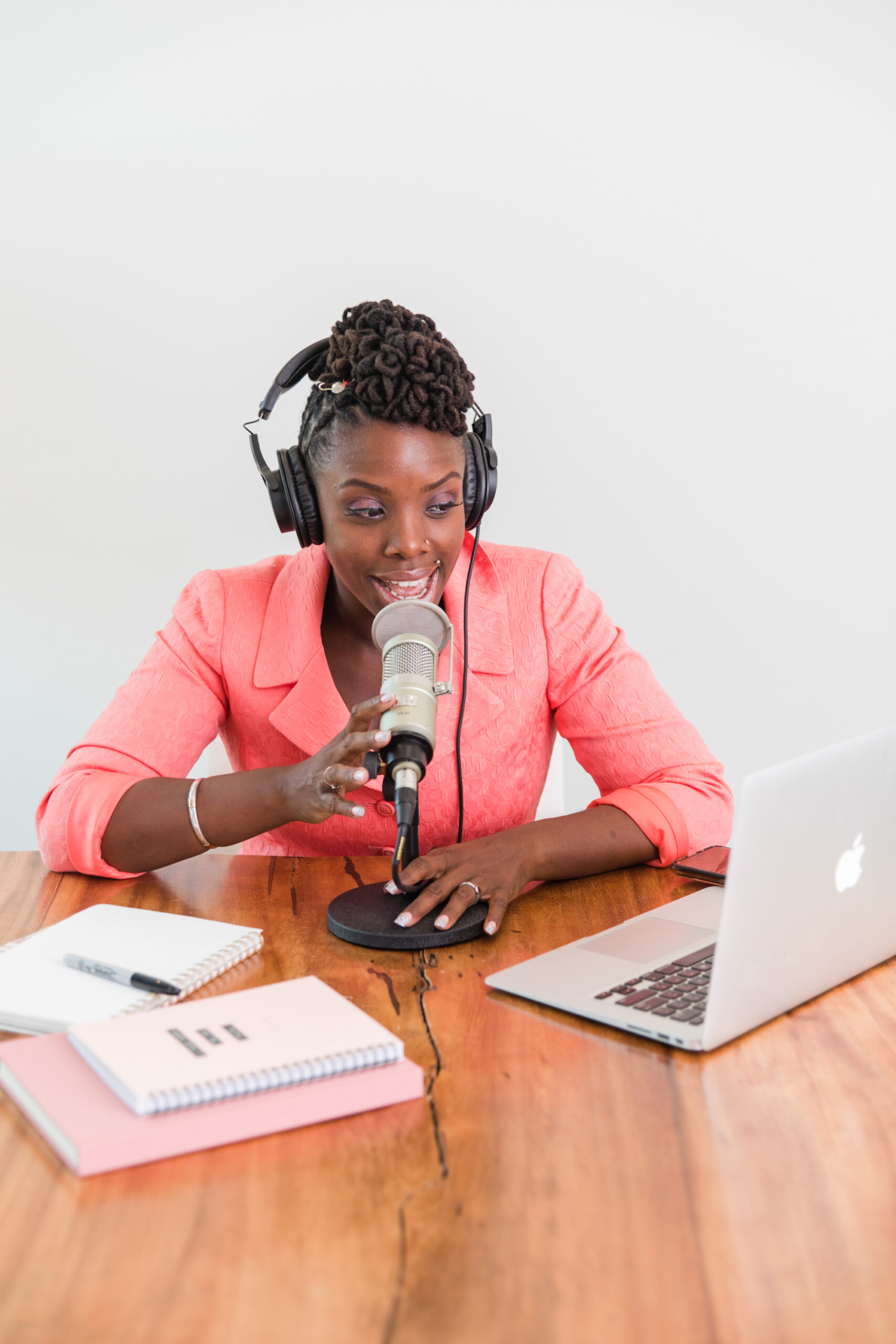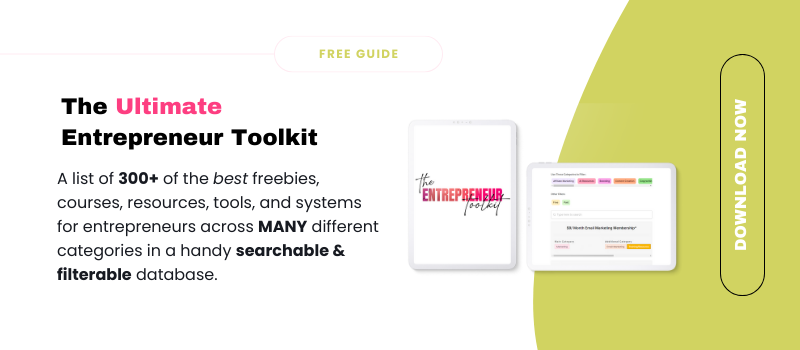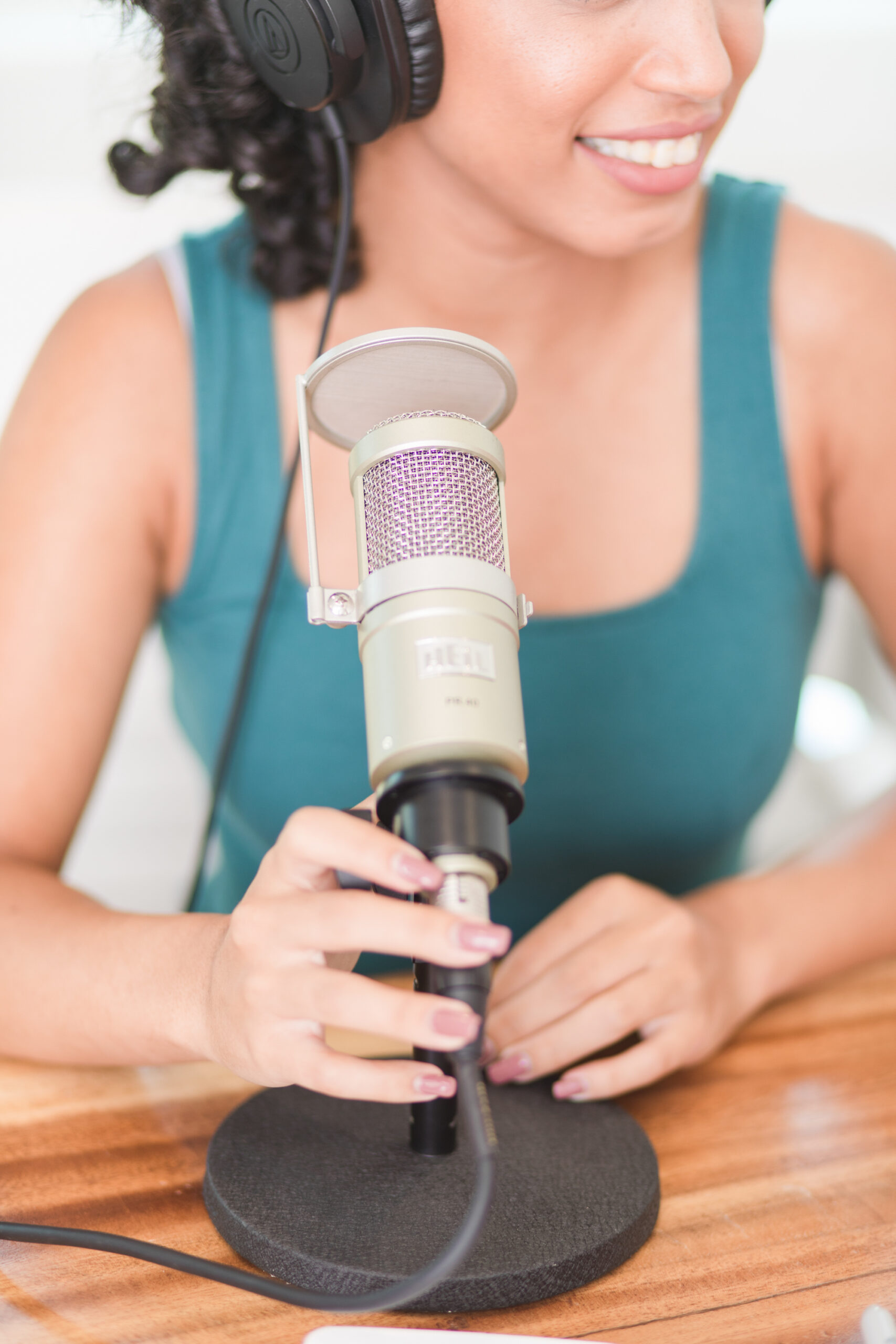Podcast Launch Checklist – Everything You Need to Know Before Launching Your Podcast

Struggling to get the results you want from your emails?
Discover 15 simple yet powerful ways to elevate your email marketing and start seeing real engagement!
Grab your freebie!
Blog Categories
Helping small business owners, virtual assistants, and creative entrepreneurs grow their business.
Hi, I'm Tara! I'm a multi-passionate business and marketing coach.
learn more + get a copy:
Last Updated on October 13, 2025 by Tara Reid
Podcasts have been booming. And with that growth has come a wealth of new content. So if you’re wanting to give podcasting a try but aren’t quite sure where to start, check out this podcast launch checklist designed specifically for new podcasters! This blog post will help you map out everything you need to do to start a podcast and give you a handy podcast checklist to follow.
Disclaimer: I earn from qualifying purchases. Some of the links on my website are affiliate links, which means, at no additional cost to you, I will earn a small commission if you click through and make a purchase.
- What is a Podcast?
- Decide if You Need a Podcast
- What are the Benefits of Starting a Podcast?
- Your Ultimate Podcast Checklist:
- Choosing the Right Podcast Equipment
- Podcast Launch Checklist: Final Steps to Launch Your Podcast
- Writing Show Notes for Your Podcast
- Submit Your Podcast Episodes to Other Podcast Directories
- The Most Import Thing With Podcasts: Consistency
- Hopefully, this podcast launch checklist has helped you begin brainstorming and starting a podcast of your own!
What is a Podcast?
Before we dig into the podcast checklist, let’s first talk about what a podcast is and who might want to create one.
A podcast is a digital audio or video file that typically contains an episode or series from a radio show, television program, or web series. It can also contain interviews, music, and spoken word performances.
I launched the Introvertpreneur podcast in February 2021, and it’s been an incredible ride! Being a podcast host has so many benefits that I never expected. But I’ll share more on that shortly.
With the increased popularity of podcasts and the integration with Apple Podcasts and iTunes, there has been a lot of discussion surrounding whether podcasting is still “new” and if it’s becoming mainstream.
In some cases, those who have been working in the industry for years may claim that it has become mainstream, while others say it is still very much new.
Decide if You Need a Podcast
Podcasts are a great way to deliver your message and create an audience. Many people listen to podcasts while they go about their daily activities, like commuting or cleaning. In fact, a recent study found that people listen to more than two hours of content on average per day!
If you decide that you want to start a podcast, the first step is to decide if it’s really for you. If you think that podcasting might be for you but aren’t sure if it will work with your current schedule, consider creating a part-time podcast until the time comes that you can commit to full-time.
While weekly episodes are the norm, that doesn’t mean that you have to record and release new podcast episodes weekly. Consistency is important, so do whatever works for you and your audience!

What are the Benefits of Starting a Podcast?
There are a lot of benefits to start a podcast for your audience! Some of these benefits I didn’t even know about or expect when I first started the Introvertprenuer podcast. I decided to start a podcast because I wanted an outlet. A way to share my knowledge on a wider scale without showing up on video.
But, some of the other benefits of podcasting are:
1) More Data From Your Audience
When you start a podcast, you’ll have a new way of gaining insights into your audience. You can get their feedback on certain episodes and see which episodes are the most popular. Using that information can help you drive your entire content and marketing strategy forward.
2) More Connections
When I first decided to have guest experts on the podcast I didn’t realize how these new connections and collaborations would move my business forward. With my podcast guests, I’ve met new business besties, collaborated in other ways, and make great connections!
3) Content Repurposing
You know I’m big on content repurposing and deciding to start a podcast allows you a consistency flow of new content to repurpose to other channels. Every podcast episode can easily become dozens of pieces of content.
If you want to learn more about creating an evergreen content bank, check out Content Kit Magic for my entire system and process!
Your Ultimate Podcast Checklist:
Here’s a look at what we will be covering in this podcast checklist to help you start your own podcast:
- Choosing the Right Podcast Equipment
- Decide on a Name for Your Podcast
- Deciding on Your Podcast Format
- Create a Logo and Podcast Artwork
- Creating Your Show Description
- Planning Your First Podcast Episode
- Find an Audio Recording Software
- Where to Host Your Podcast: Podcast Platforms
- Choose an Audio Editing Software
- Writing Show Notes for Your Podcast Episodes
- Identify Possible Episodes for Your Show
- Submit Your Podcast to Apple Podcasts and Spotify
- Submit Your Podcast Episodes to Other Podcast Directories
Choosing the Right Podcast Equipment
An audio podcast requires a good podcast mic. There are lots of options out there for decent podcast microphones. I ultimately decided to go with a Yeti microphone for my podcast and I can definitely recommend it. No matter what podcasting equipment you choose, it might require a bit of an investment for a high quality audio file.
Audio quality is the biggest reason why people won’t listen to a podcast!
Deciding on Your Podcast Format
While you have the flexibility to change up your podcast format, it’s good to have a starting point in mind.
How long will episodes typically be?
Will there be a mix of solo and episodes with podcast guests?
Will you have a specific podcast theme?
How often do you want to release new episodes?
Planning Your First Podcast Episode
When planning your first episode you’ll want to start with the intro and outro music. Your podcast music sets the tone of your entire show. You can find royalty free music options for your podcast intro music at these recommended resources:
There are a lot of options for podcast music and don’t worry about choosing perfectly.
You can always change it up each new podcast season!
What should your first podcast topic be?
Consider what the most people ask you about and what you want to be known for. That’s usually a good topic for your first episode! You can also use your first few episodes as a starting point so listeners can get to know you and what they can expect from your podcast. Your first episode sets the tone of your podcast.
Get into the habit of creating an episode outline. This can be a complete script of just a general guideline or notes so you make sure to cover everything you want to.
Find an Audio Recording Software
One of the first things you’ll want to do before launching your podcast is to find a recording software. You’ll need this software in order to record, edit, and upload your podcasts. There are many third-party apps that are popular among podcasters, but we recommend using either GarageBand or Audacity. Both of these tools have been around for a while and offer everything you need to run a successful podcast.

Decide on a Name for Your Podcast
The name of your podcast is the first and most important decision you’ll make. This is where you set the tone for your podcast. You want to come up with a name that makes sense to your audience and will help them easily find what they’re looking for.
If you don’t know how to choose a good name, consider these tips!
A podcast typically has three main parts: the introduction, an interview, and a conclusion. You could use these factors as inspiration for your podcast name.
Another thing to keep in mind when choosing a podcast name is whether or not it will create confusion among potential listeners. For example, if you have two podcasts with the same title but are about different topics, potential listeners may get confused about which one they should listen to!
Also, make sure there isn’t already a podcast with the same name (or a trademarked business name!).
Create a Logo and Podcast Artwork
The first step to starting a podcast and in front of new listeners is actually creating it. If you’re needing a logo, you can use a free resource like Canva to design one easily. Make sure that your logo is professional and eye-catching.
For podcast cover artwork, there are a number of ways that you can get artwork for your podcast, including hiring an artist or asking friends and family members for help. Your podcast artwork and cover art should make your podcast stand out and fit with your brand.
Where to Host Your Podcast: Podcast Platforms
Finally, think about where your podcast will be hosted. You can host it on Soundcloud or Libsyn, which don’t require any previous experience or knowledge of how to use them.
I currently use Libsyn as my podcast platform and LOVE it! No matter which podcast hosting service you use, make sure you shop around – there are a lot of options and different podcast hosting platforms available now.
Choose an Audio Editing Software
Before you even think about starting a podcast, you will need to choose an audio editing software. This software will allow you to process and edit your audio files so that they are ready for their release. There are many different options available, so it is important that you consider your personal preference before choosing a program.
Alternatively, you can always outsource the editing process of your audio files. Podcast editing is super time-consuming so it might be a worthwhile investment.
When you sit down to record audio for your podcast episodes — save yourself some editing headaches later on by making sure you are in a quiet space and no echoes. You’ll be glad you did later when you are editing your audio file.
You should also think about what type of podcast equipment you will be using for the release of your podcast. If you are starting from scratch and have no equipment, there are many free programs available, as well as some low-cost options.
However, if you already have some basic recording equipment, like a podcast microphone or camera microphone, then advanced audio editing software can do wonders for your work!

Podcast Launch Checklist: Final Steps to Launch Your Podcast
Starting a podcast should have a lot of planning and thought put into it, but it doesn’t have to feel overwhelming. It should be a fun experience! And one that serves your audience, gets your voice out there, and grows your audience. Once you understand a bit more about how to launch a podcast, there are really only 3 easy steps in this podcast launch checklist.
1. CREATE A PODCAST TITLE AND PODCAST DESCRIPTION
Before you start blogging or recording, it’s important to come up with the best name and description for your podcast. The title of your podcast should be unique, informative, and concise so your future audience will want to tune in.
When creating your description, consider what you want listeners to know about your show before they even click on the episode. This will help provide context for them right as they are listening to your first episode!
2. IDENTIFY POSSIBLE EPISODES FOR YOUR SHOW
Once you have a clear idea of what you’re going to talk about (and how often), it’s time to brainstorm potential episodes. But first: what will be your normal podcast episode length?
Ask your audience what they want to hear about.
Make sure to consider keywords and SEO when deciding on the perfect episode title.
With enough initial research done, you will be able to prepare interesting stories for each episode of your show.
3. SUBMIT YOUR PODCAST TO APPLE PODCASTS AND SPOTIFY
The final step is to submit your podcast to Apple Podcasts, Google Podcasts, and Spotify! It’s not as complicated as it might sound. I would also recommend creating a launch strategy around your initial podcast release.
For the Introvertpreneur podcast launch, for example, we had a launch team who shared the podcast announcement and provided their feedback after getting early access. We also dropped not only 1 new episode but 4 on the initial podcast launch. We started with multiple episodes so people could get excited and binge-listen a bit.
Writing Show Notes for Your Podcast
Your podcast show notes are a powerful piece of content for each new episode. You’ll also want to have a podcast website section for SEO (search engine optimization) purposes. Having your podcast on your website allows your domain to get found for more search terms and get more organic search traffic.
What are podcast show notes?
Your show notes are a written accurate description of your podcast episode including what it’s about, what your audience will learn, etc. They can include a few paragraphs, timestamps, links, and more. Ideally, you will want to host your show notes on your own website because of the powerful SEO benefits.
Submit Your Podcast Episodes to Other Podcast Directories
There are a number of podcasting directories that will allow you to list your podcast and get in front of new audiences. We all know about the major podcast directories but there are a lot of other options. Getting your own podcast listed in these directories helps with SEO (yay for backlinks) and getting more visible.
Here are a few places where you can submit your podcast:
The Most Import Thing With Podcasts: Consistency
Being a podcast host is a lot of work, and creating a successful podcast requires consistency. Your podcast listeners subscribe and want to hear from you. Just stay ahead of your recording & publishing schedule, create an episode outline, try to batch-record as much as possible, and avoid the dreaded pod fade.
If you want to learn more about my entire automation process, click here to learn more about AutoPOD Pro! This is my step-by-step process of creating, publishing, and marketing my new episodes.
Starting a podcast is a lot of work, but it has so many benefits!
Hopefully, this podcast launch checklist has helped you begin brainstorming and starting a podcast of your own!
Tara Reid is a multi-passionate business and marketing strategist for introverted entrepreneurs who want to grow without relying on hustle culture or social media. With 18+ years of online business experience, she helps course creators, service providers, and digital product sellers build sustainable businesses through evergreen marketing, blogging, SEO, Pinterest, and email.
As the founder of the Introvertpreneur Club, Tara’s mission is to show heart-centered entrepreneurs that you don’t have to be loud to be successful. You just need the right strategies that fit your personality.
When she’s not supporting clients or creating new resources, you can find her at home in Canada with her three rescue dogs, a cup of coffee in hand, dreaming up her next project.
The Introvertpreneur Podcast
listen in to the top rated business podcast that is designed for introverted entrepreneurs who want to grow + scale in a more sustainable and fun way!
Top rated podcast
This one's on me. Complimentary free stuff coming right up.
leaving so soon?
Look behind the curtain and see exactly what I do every week, month, and quarter, to market my business without social media (in under 5 hours per week)!
The Quiet Marketing Playbook
Take this free quiz and learn what your superpower is as an entrepreneur. You'll also get a curated list of my best resources and tips for using your superpower to your advantage!
What's your Introverted Superpower?
Best Free Resources:
dig into 'em now!
A business strategist and marketing coach who focuses on helping course creators, coaches, and service providers, build sustainable businesses without social media.